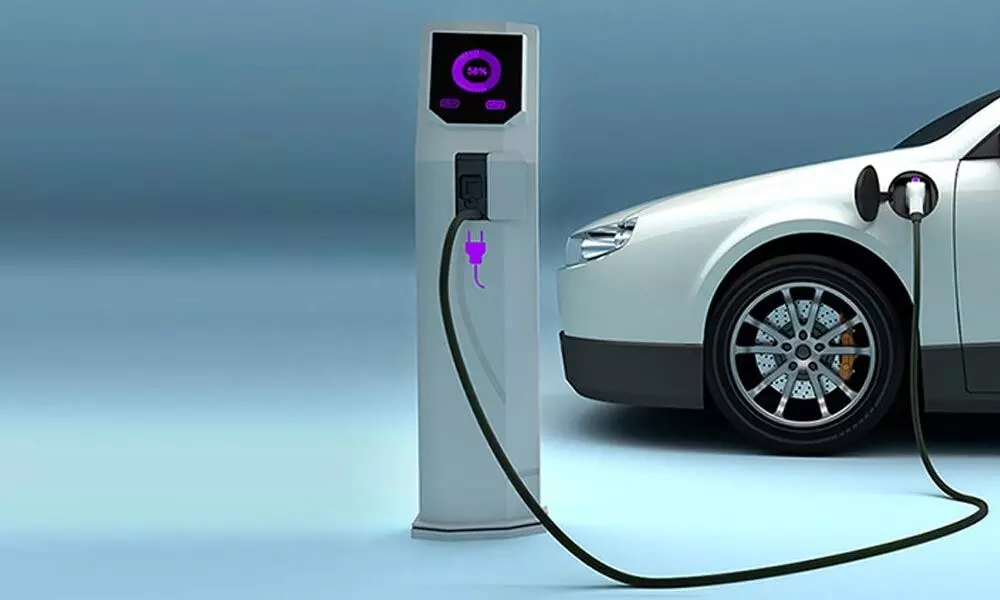EV revolution in India:The journey has begun, miles to go
Electric vehicle (EV) is the future. And the future is near. Rising adoption of EVs across the globe shows that the dependency on fossil fuel-powered automotive will wane and preference for green alternatives will increase.
image for illustrative purpose

Electric vehicle (EV) is the future. And the future is near. Rising adoption of EVs across the globe shows that the dependency on fossil fuel-powered automotive will wane and preference for green alternatives will increase. Though the number of vehicles sold across the world still constitutes a miniscule part of the entire automobile market, it is increasing sharply. Therefore, EVs will drive the automotive market in the future. In India, the EV market is currently in its infancy. In terms of penetration, EV sales accounts for barely 1.3 per cent of total vehicle sales in India during 20-21. However, the market is growing rapidly and is expected to contribute a sizeable portion in the near future. According to a report by consulting firm RBSA Advisors, EV market in India is estimated grow at CAGR of 90 per cent from 2021 to 2030. In value term, India's EV market is likely to touch $150 billion by 2030. Such shift to shared, electric and connected mobility could help the country save nearly one giga-tonne of carbon dioxide emissions by 2030. This is very crucial given the zero-emission target set up at Copenhagen summit concluded recently.
Given the growth prospects, both established automotive firms and startups in India are betting big on the EV ecosystem. Players like Tata Motors, Mahindra, Hero, Bajaj Auto, Ashok Leyland, Hyundai, and TVS Motor have started investing into the EV segment. Tata Motors, for instance, holds around 71 per cent market share for electric vehicles in India and investing heavily into this segment. The company has roped in TPG which will invest Rs 7,500 crore in Tata Motors' EV subsidiary. Similarly, TVS Motor has announced that it will invest around Rs 1,200 crore in future technologies and EV space. Apart from the traditional automobile players, even global giant Tesla and mobility startup Ola are also committing huge investment into this segment.
Startup ecosystem is also optimistic about the growth of EVs in India and many are investing heavily to gain a fast mover advantage. Startups like Ather Energy, Simple Energy, Bounce Mobility are poised to offer affordable and sustainable mobility solutions for people in the country. Interestingly, the entire supply chain concerning the EVs is getting investors' interests. Starting from charging infrastructure to battery technology, the whole ecosystem is receiving the attention of many players. The government is also playing a crucial role in boosting the market growth.
Indian EV market is at the cusp of major transformation. This new ecosystem will definitely disrupt the existing vehicle market, but the country will gain a lot in terms of technology, greener mobility options and job creation opportunities in coming years. The trend in this direction is already visible. Due to rising investment in the research and development of EV segment, many engineering services companies in the IT services space are getting more projects to execute. Similarly, a true EV option will reduce India's dependence on import of crude oil- one major component of our import basket. This will lead to higher forex savings with reduction in trade deficit. Against this backdrop, rapid growth of EV market is both healthy and profitable for India.

